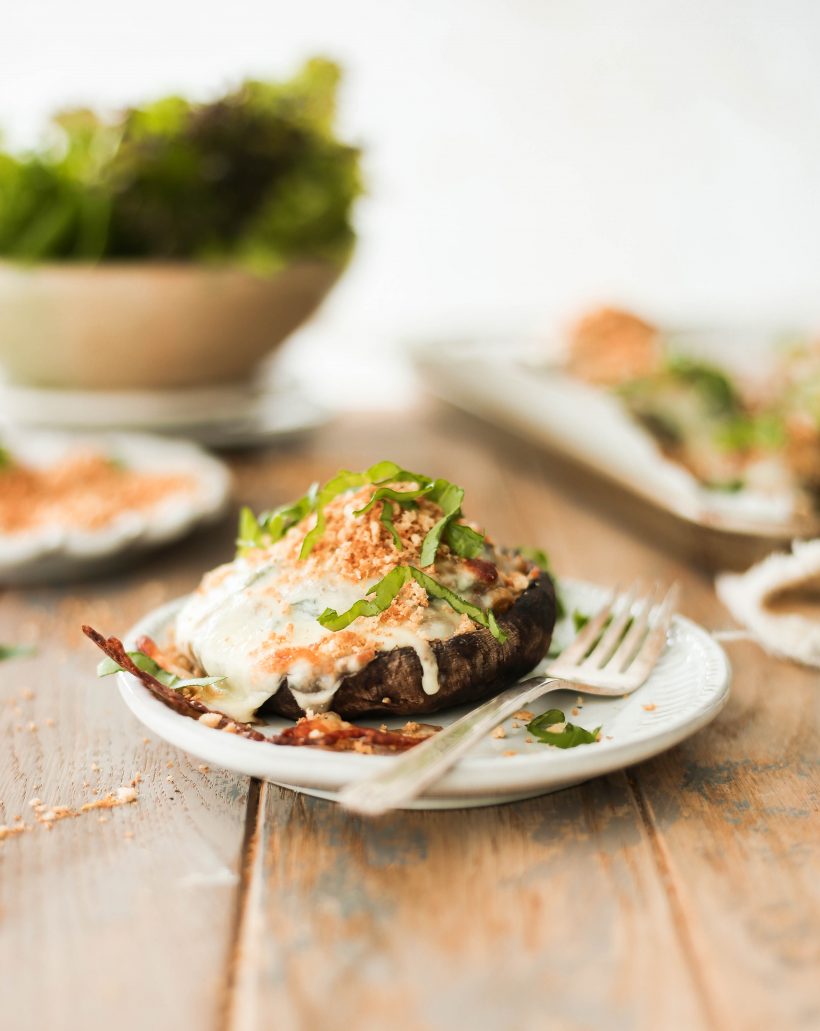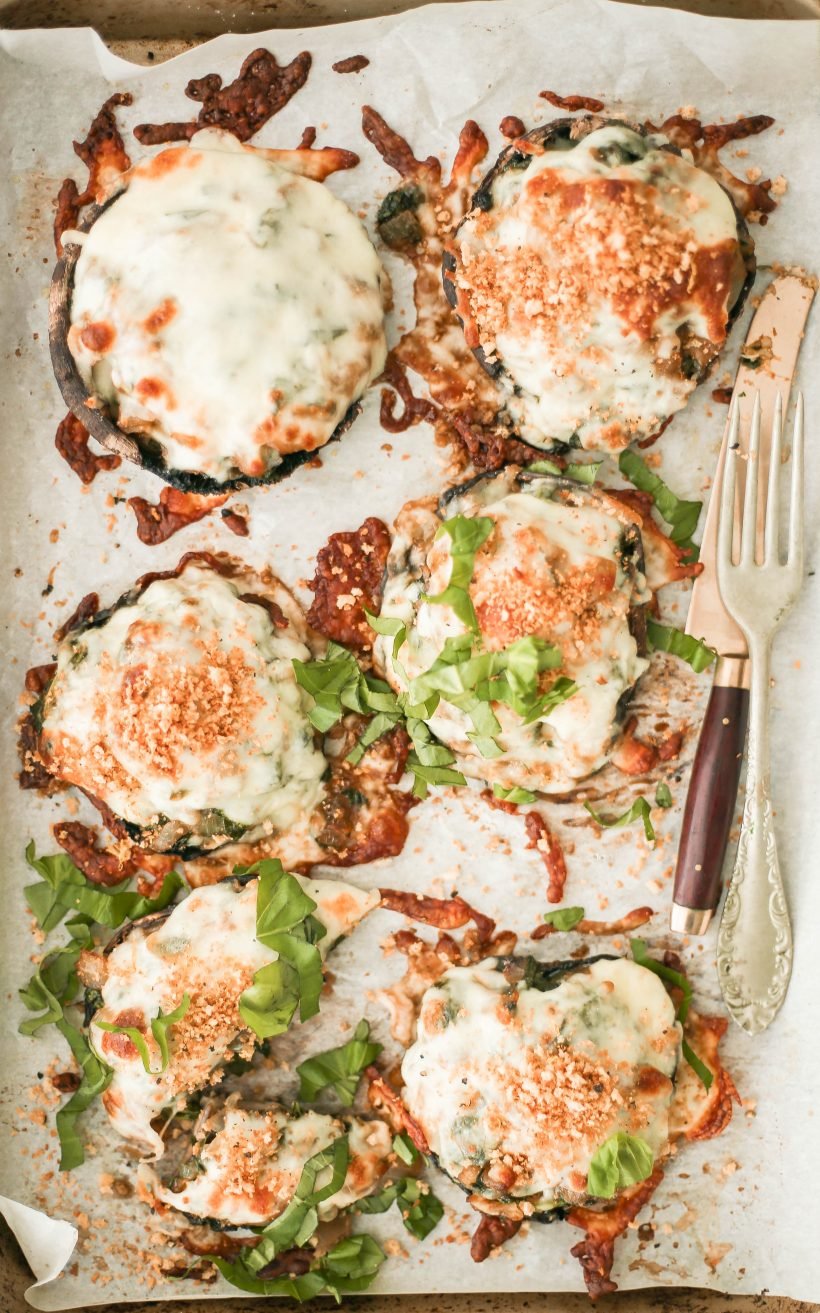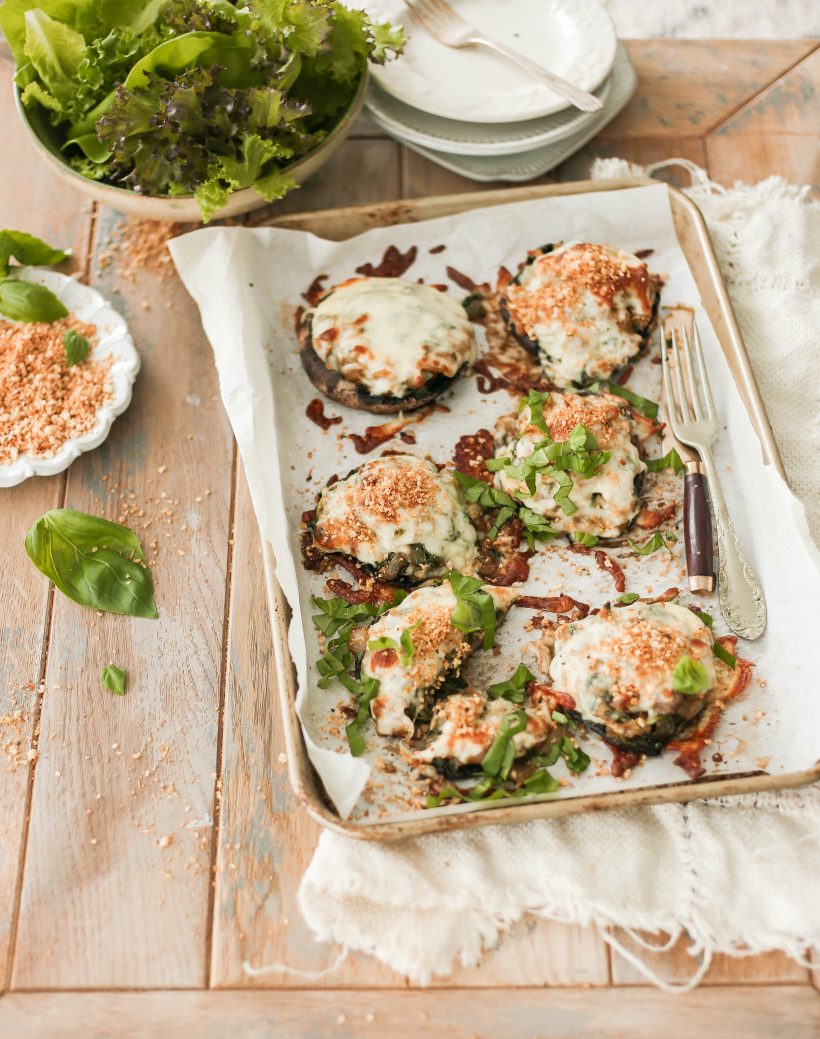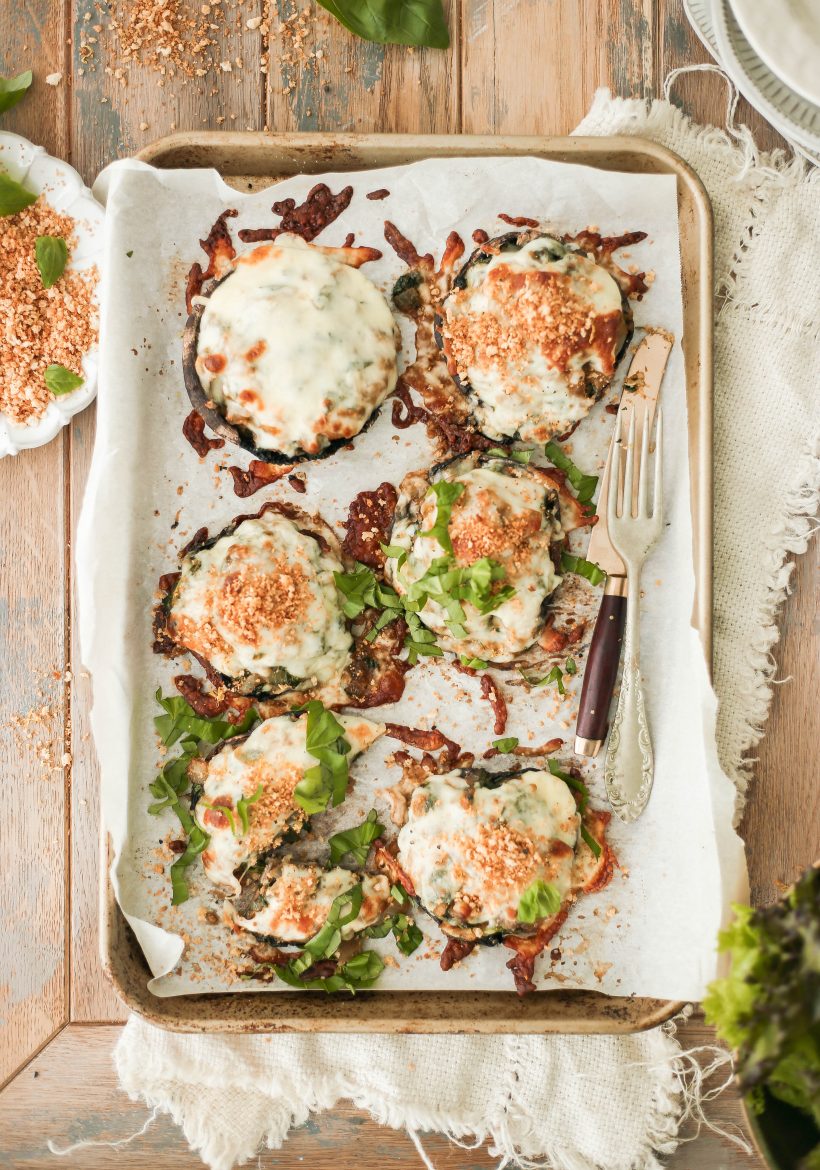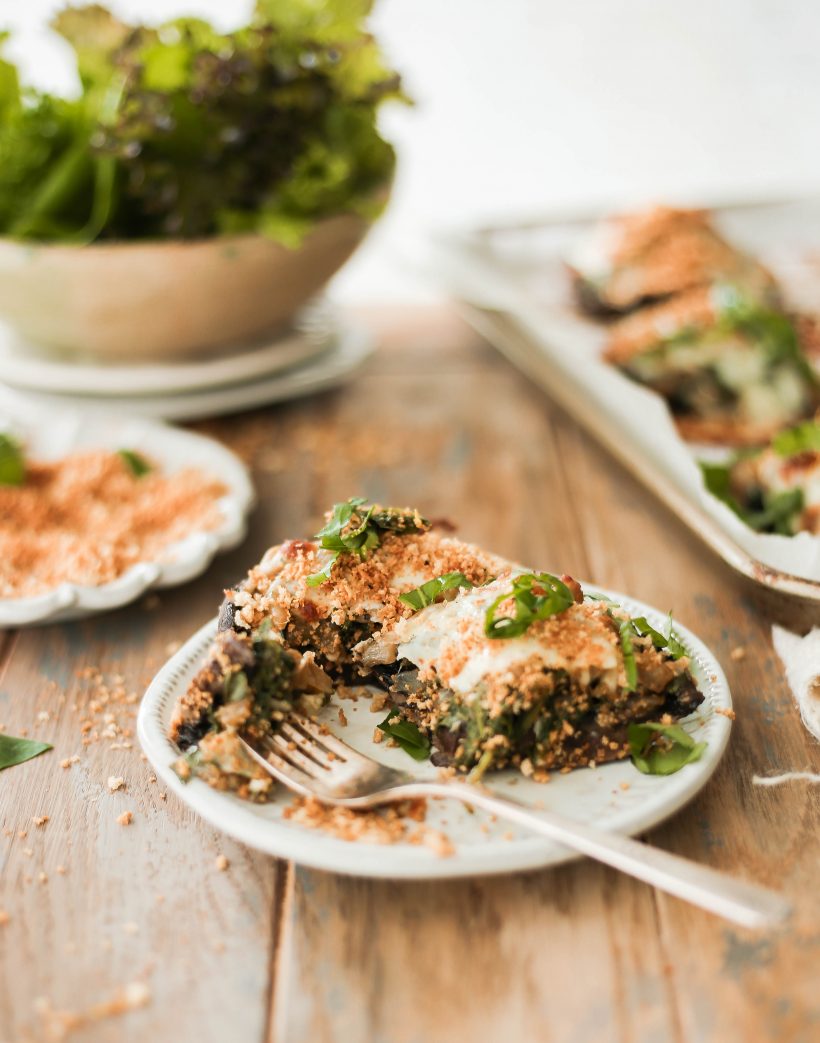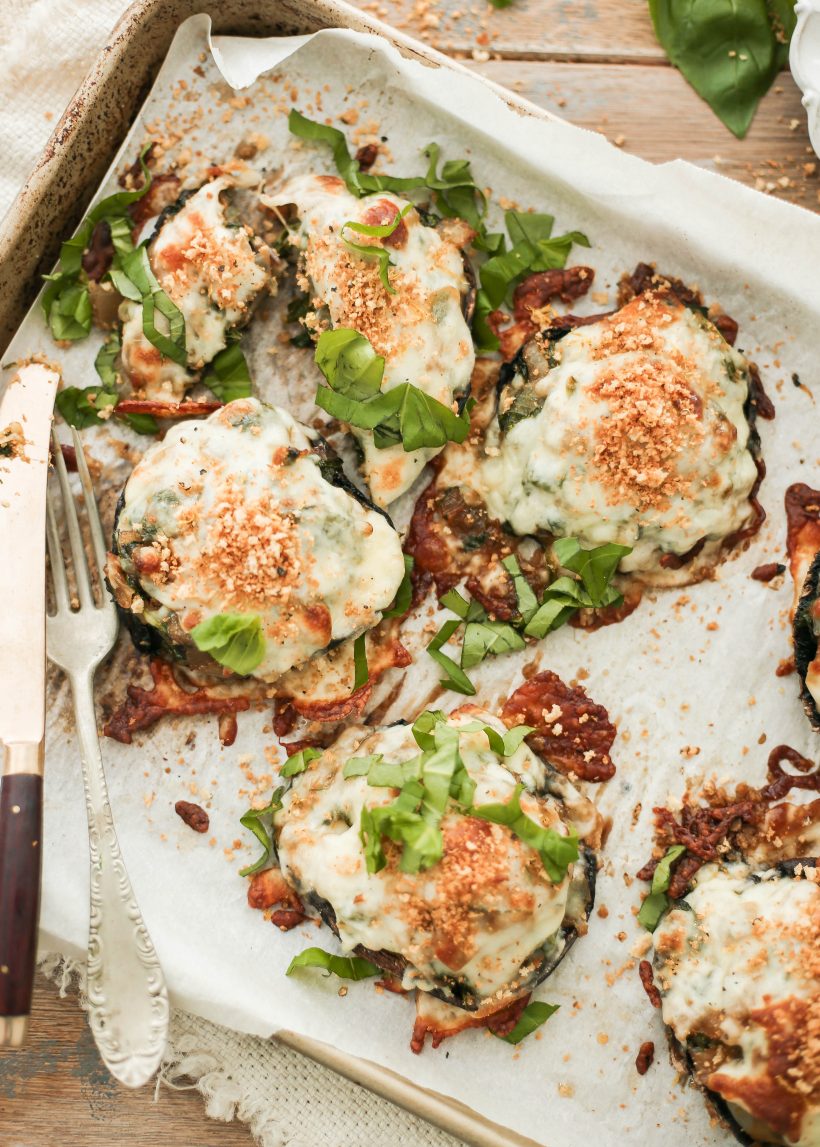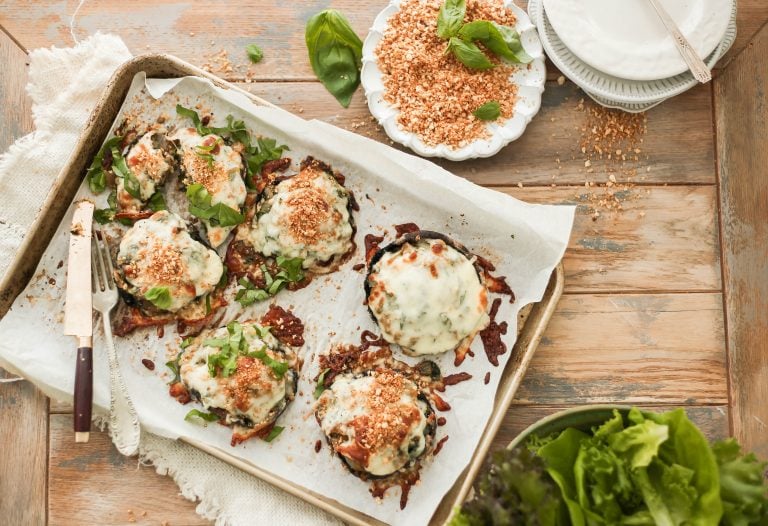
It’s unfortunate but true: stuffed portobello mushrooms used to get a bad rap. Being a vegetarian in the early aughts, I was often left with very few meatless mains to choose from when it came to eating out. Having selected my only option from the menu, a waiter would inevitably appear with a large portobello cap centered on the plate. No accompaniments or garnishes—just a giant baked mushroom. I’d be lucky if I could swallow a single rubbery, bland bite. Needless to say, when it came to portobellos, I was scarred. So what’s a recipe developer to do but create stuffed portobello mushrooms that are actually palatable, and dare I say, delicious.
The last few years have seen a mushroom renaissance. From King Oyster to Hen of the Woods, mushrooms have become a part of the culinary zeitgeist and are a joy to eat. In many kitchens (my own included), mushrooms are lauded as a functional superfood and treated like a powerhouse ingredient.
I’ll eat mushrooms any and every way I can. While I’m partial to shiitake or maitake, I’ve recently fallen in love with the earthiness of portobello mushrooms. They’re great on their own, adding a meaty heft to omelets and pasta, but I’ve converted to stuffed portobello mushrooms, enjoying all the deliciousness I can. Nothing inspires like incorporating new ingredients into a staple dish, and many iterations of stuffed portbello mushrooms later, I’ve found the combination I’ll make now until forever. The best part? You only need five ingredients to cook up a little mushroom magic.
How to Cook Stuffed Portobello Mushrooms
I can’t take credit for this trick, but one thing I discovered while making this recipe a few times was that mushrooms, when roasted, release a lot of water. I’m used to sautéing mushrooms in a pan, so I never gave this issue much thought. But when baked on a sheet tray, the mushrooms sit in their liquid and turn soggy.
After doing a little research, I found this method that lets the mushrooms breathe while baking on an oven-safe cooling rack. This allows the extra liquid to drain off, helping the mushrooms cook through. Game changer.
Don’t have an oven-safe cooling rack? I’ve also done this by cooking the mushrooms first stem-side up and then flipping them so they cook all the way around. Worst-case scenario, sop up the liquid with a kitchen towel before stuffing the mushrooms. Trust me: Trying any of these simple tricks will make all the difference.
The Filling: How to Caramelize Onions
Caramelized onions are truly one of the gems of the recipe world—scratch that, the food world in general. The magic that happens when onions cook down, getting golden and sweet, is a total treasure. But I won’t lie, I’ve burned my fair share of pans in the process and been left with a few sticky, unpleasant results. But after countless batches, I’ve found a method that gets caramelized onions, in all their sweet and jammy glory, just right.
- Start with chopped and diced onions. In lieu of long strands, chopped and diced onions give your stuffing a tastier texture.
- Use a large pan. Larger than you think you need! The onions need room to cook over direct heat. If you pile them in a small pan, they’ll steam and get soggy. No thanks.
- The more oil, the better. Starting with a few extra glugs helps keep everything smooth and glossy in the early stages of cooking. If your pan feels dry while cooking the onions, add more oil as needed.
- Cook low and slow. Avoid high heat at all costs! Cooking your onions at a higher temperature will dry the pan and burn your onions. I keep the heat on low to medium-low and adjust as needed. It might take a minute to find the right balance between constantly stirring and letting the onions sit against the heat, but it’s well worth the effort.
- Deglaze with vinegar. I love balsamic or apple cider vinegar to deglaze the pan once your onions are almost done cooking. A little splash at the end will pick up all the golden bits sitting on the pan. Plus, the vinegar will add a nice bite of acidity to the onions that complements the sweetness perfectly.
Caramelized onions take a little babysitting and a bit of time. But when cooked this way, the final result yields so much flavor.
Tips for Next-Level Stuffed Portobello Mushrooms
So you have your tray of stuffed mushrooms. Now what?
I like serving my stuffed portobello mushrooms with a really bright and acidic salad. Crisp greens with a zingy lemon dressing make for a perfect pairing. If you think your plate could use some carbs, serve a pot of rice alongside. Bread is always a delicious option, too.
Once you’ve wrapped up your meal, don’t worry about leftovers. Personally, I find that stuffed portobello mushrooms don’t keep very well, but I have found a tasty solution for next-day deliciousness. If you have a few mushroom caps left, place them on a cutting board, chop, and dice them into small cubes. This includes the filling, too. Store in the fridge in an airtight container.
The next day, sauté the leftovers in a pan and toss them into an omelet or frittata. Or, make a big pot of pasta while you sauté the mushrooms in butter. Add the cooked pasta to the mushrooms with a little of the pasta water plus Parmesan for added decadence. With leftover stuffed portobello mushrooms, anything is possible.
